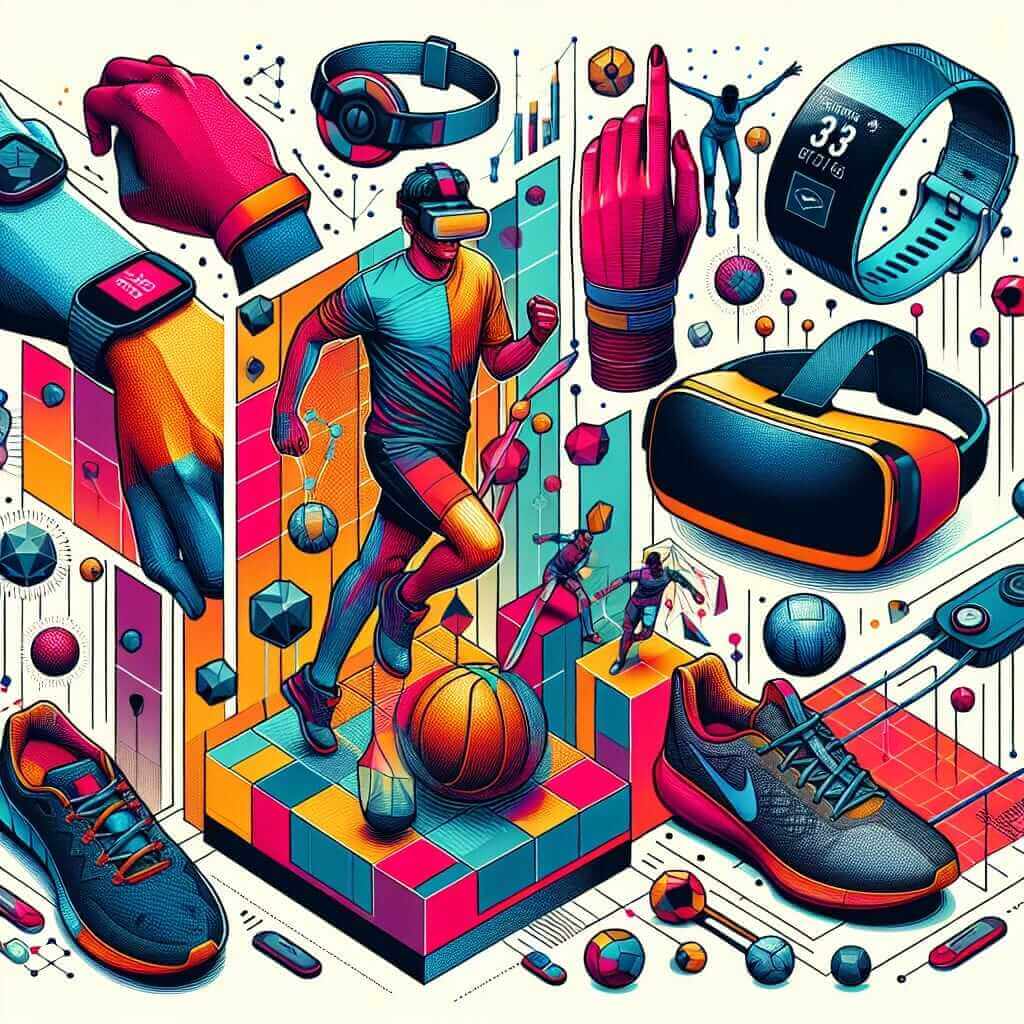As an IELTS instructor with over 20 years of experience, I often see students struggle to express themselves effectively, especially when faced with specialized topics like “sports technology.” This area is increasingly relevant not only in everyday life but also in the IELTS exam. Whether you’re describing a graph on fitness tracker usage or discussing the impact of technology on athletic performance, a strong vocabulary is essential for achieving a high band score. So, let’s dive into the exciting world of sports technology vocabulary and discover how it can boost your IELTS performance.
Understanding the Importance of “Sports Technology” Vocabulary
In the IELTS exam, particularly in the Writing and Speaking sections, you might be asked to discuss topics related to sports and technology. This could involve:
- Describing trends: You might need to analyze and describe data on the use of wearable technology in sports.
- Discussing impacts: Essays or speaking prompts could focus on the influence of technology on athletic training or the future of sports.
- Giving opinions: You may need to express your views on the ethical implications of technology in sports.
Using precise and varied vocabulary related to “sports technology” demonstrates your language fluency and ability to handle complex topics – key factors in achieving a high IELTS band score.
Exploring Key Terms and Phrases
Let’s enrich your vocabulary with some essential terms and phrases:
General Terms
- Sports Technology: Refers to the application of scientific knowledge and technological advancements to enhance athletic performance, training, and the overall sporting experience.
- Wearable Technology: Devices worn on the body, such as fitness trackers, smartwatches, and GPS sensors, to monitor and analyze athletic performance metrics.
- Performance Analysis: The use of technology to gather and interpret data on athletes’ movements, technique, and physiological responses.
- Biomechanics: The study of mechanical principles relating to the movement of living beings, often used in sports to improve technique and prevent injuries.
Specific Technologies
- Heart Rate Monitor: Measures heart rate during exercise to optimize training intensity and recovery.
- GPS Tracking System: Tracks an athlete’s location, speed, distance, and other metrics during training and competition.
- Motion Sensors: Capture data on an athlete’s movements, allowing for detailed analysis of technique and biomechanics.
- Virtual Reality (VR): Creates immersive simulations for training purposes, allowing athletes to practice skills and strategies in realistic environments.

Applying Sports Technology Vocabulary in IELTS
Here’s how you can use these terms effectively:
Writing Task 1 (Describing a Graph):
“The graph illustrates the significant rise in the use of wearable technology among professional athletes. For instance, the percentage of athletes using GPS tracking systems to monitor their training load increased dramatically from 20% in 2010 to 85% in 2020.”
Speaking Part 3 (Discussion):
“I believe sports technology has revolutionized the way athletes train and compete. Performance analysis tools provide valuable insights, allowing athletes to identify weaknesses and optimize their training regimes.”
Writing Task 2 (Opinion Essay):
“While virtual reality offers exciting possibilities for athlete training, some argue that excessive reliance on technology could have detrimental effects on an athlete’s natural instincts and decision-making abilities.”
Tips for Success
- Context is Key: Use vocabulary in a way that clearly demonstrates your understanding of the terms and their relevance to the topic.
- Variety is Vital: Avoid repeating the same words or phrases. Use synonyms and paraphrase to showcase your lexical range.
- Practice Makes Perfect: Incorporate these terms into your writing and speaking practice to enhance fluency and accuracy.
Conclusion
By mastering vocabulary related to “sports technology,” you’ll be well-equipped to tackle a wider range of IELTS topics and demonstrate your language proficiency. Remember, consistent practice and focused vocabulary building are key to achieving your desired band score.